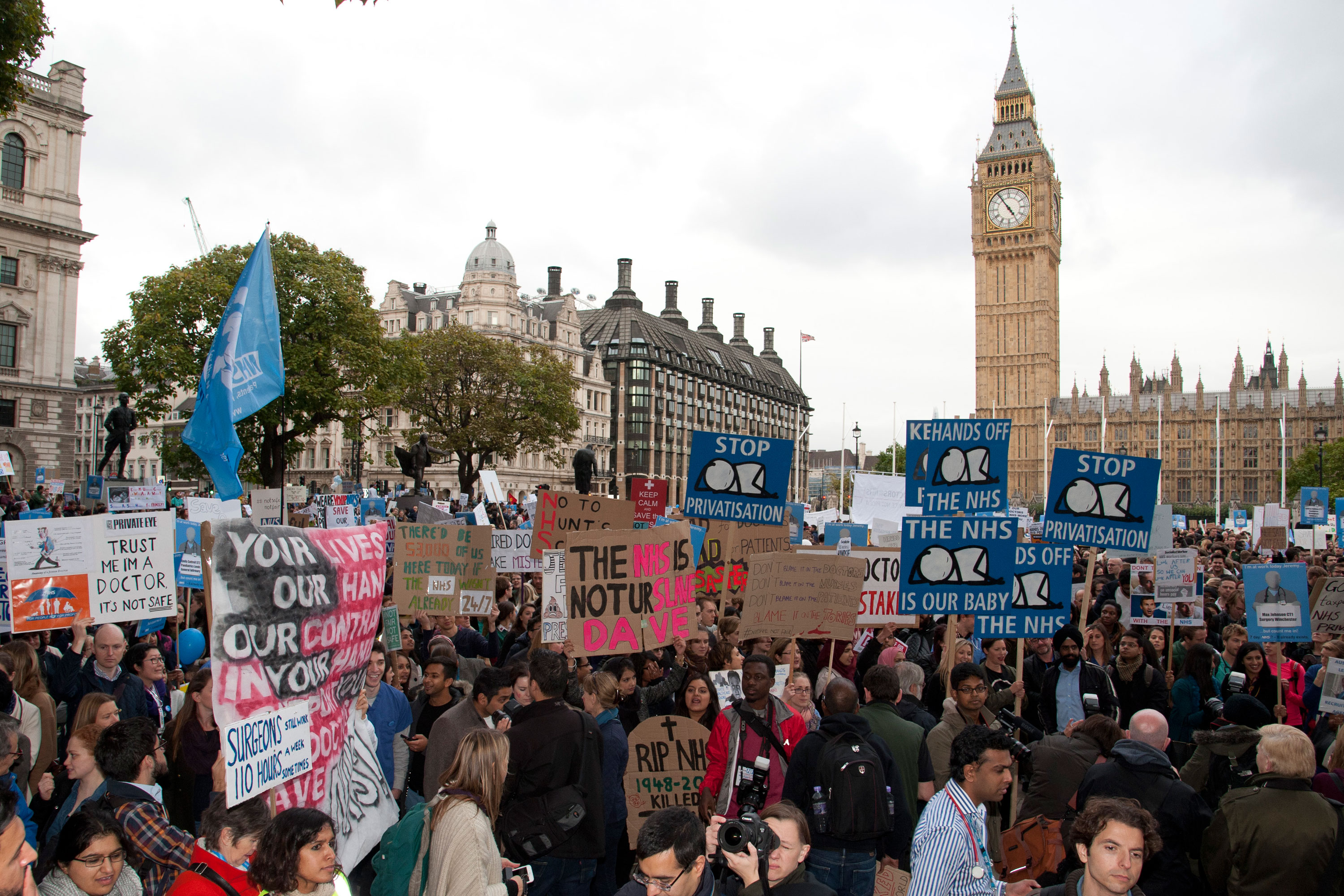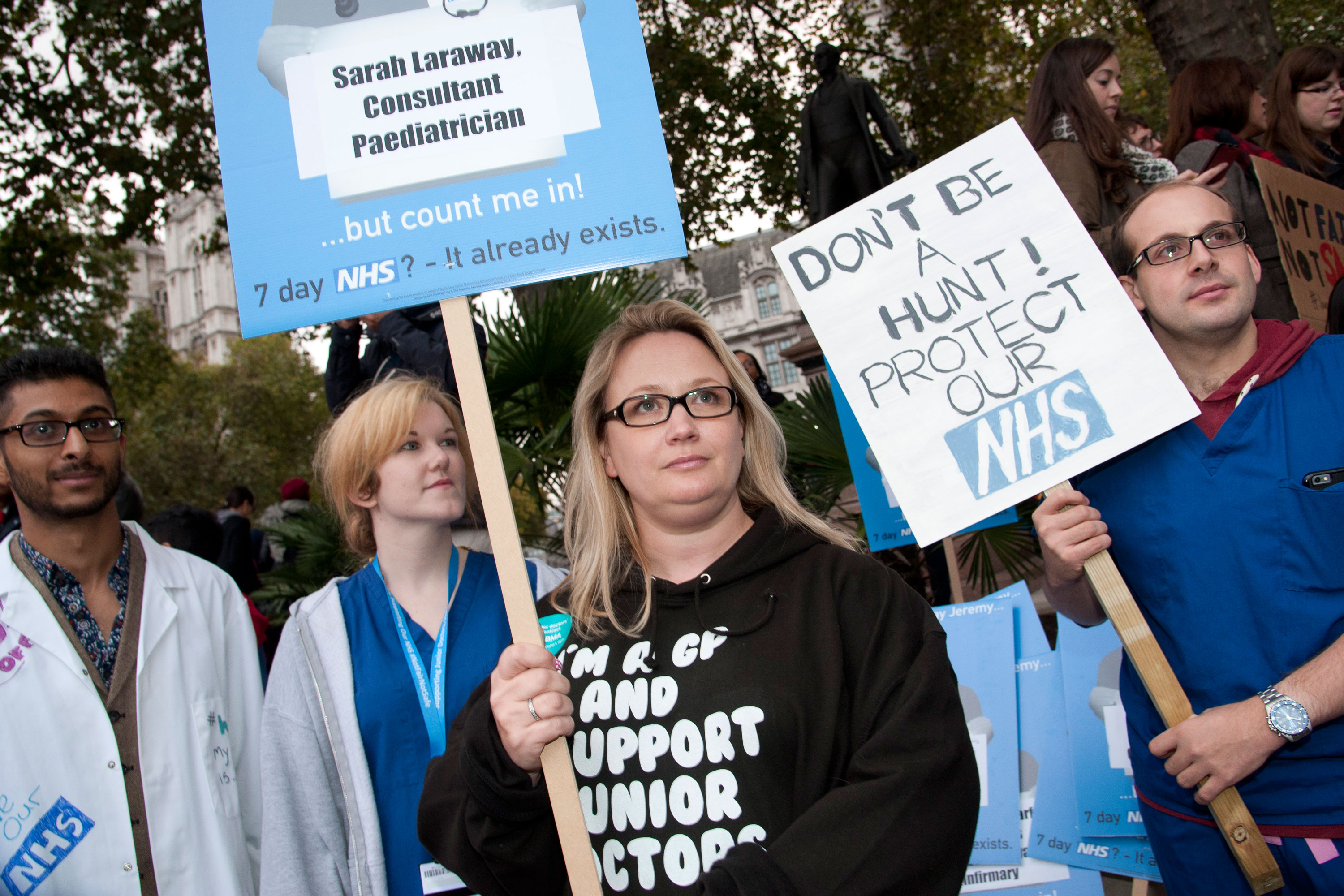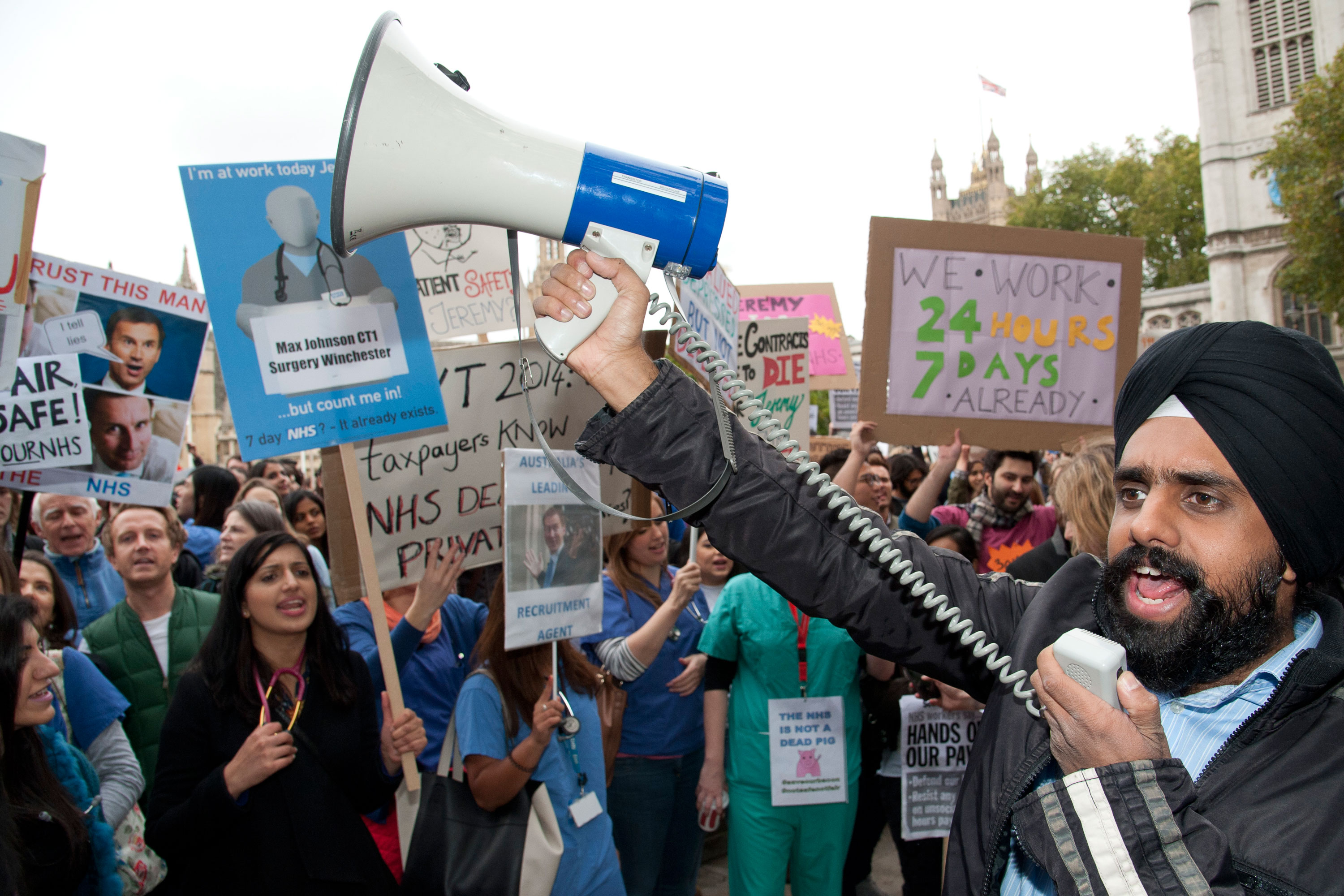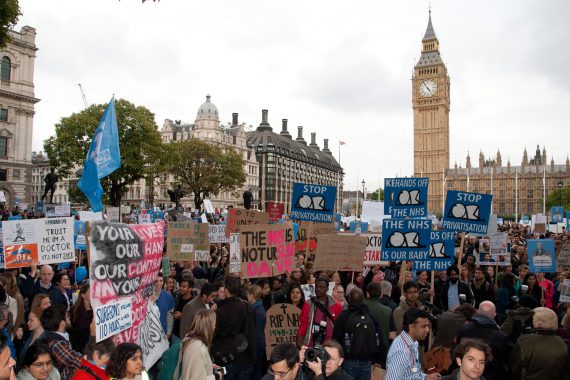
For the second time in little more than three years, the BMA has prepared its members for a ballot on potential industrial action. Before 2012, the last time this happened was 40 years ago.
This time round, GP trainees, alongside their hospital colleagues, are being asked this month whether they would be prepared to take action over the Government’s imposition of a new junior doctor contract, a move that has already seen protests across the country.
For GP trainees, the proposals will remove the current guarantee of pay parity with hospital doctors, known as the GP registrar supplement.
Health secretary Jeremy Hunt has given assurances that GP trainees will not be ‘disadvantaged compared with the current system’ and a ‘cast-iron guarantee’ that the overall bill for junior doctors’ pay will not decrease.
But the BMA has rejected the Government’s attempts to stop the ballot and organised a march of 20,000 doctors to Parliament this month. The union has pointed out that there are no commitments over individuals’ pay (as opposed to the total bill), and no recognition of unsocial hours or inclusion of working hours safeguards.

And GP trainee leaders have said that, despite Mr Hunt’s letter, there are no long-term assurances that GP training pay will remain as it is, while the lack of detail about the contract will leave GP trainees fearing that their salaries could be cut in the future.
Before the 2012 ballot over NHS pensions, BMA members had not been balloted on taking industrial action since 1975.
The current dispute centres on proposals from the Review Body on Doctors and Dentists Remuneration, which the Government has said it may impose on junior doctors.
Under the proposals, Saturday and evening working will no longer count as ‘unsociable hours’ for junior doctors, meaning that trainees who do lots of out-of-hours work will see their salaries cut.
Assurances
Junior doctors’ leaders have said that they are prepared to renegotiate with the Government if they are given assurances that there will be no contract imposition and that Saturday and evening work will be treated as unsociable hours.
For GP trainees, the Government’s proposal of removing the GP registrar supplement could leave them vulnerable to pay being cut.
Currently, the way the junior doctor contract works means that doctors are paid more for working evening and weekend shifts.

The GP supplement is enshrined in the contract, and is an historic means of ensuring GP trainees pay does not suffer because they tend to work fewer weekend and evening shifts than their secondary care colleagues.
But the Government says the supplement would be replaced by ‘flexible pay premia’, which will be reviewed to ensure that they support those specialties facing the worst recruitment problems.
However, Dr Donna Tooth, chair of the GPC trainees subcommittee and a second-year GP trainee in Essex, says there is a lack of clarity about how this would work.
She says: ‘There’s no information about how it will work, whether there will be regional pay differences, and other issues.
‘What we can’t afford to see is GP trainees in London getting paid a different salary to trainees in Yorkshire, because the pay premium is something that changes on a yearly basis.’
There are no guarantees the premium will not change from year to year.
Dr Tooth says: ‘ If you are a GP trainee, you sign up to a three- or four-year programme, and what we need to see is protection for those trainees.
‘We cannot have a situation where a body decides there is no longer a GP recruitment crisis, or there is no longer a crisis in Birmingham, or Yorkshire, and tells GP trainees their salary will change.’
The Government and NHS Employers are keen to stress that there has been no decision about the pay of junior doctors, so any calculations about individuals’ remuneration are based on speculation.
However, until Mr Hunt offers reassurance on working hours and the imposition of the contract, and in the absence of clarity on GP registrars’ pay, speculation about the consequences for all trainee doctors is likely to continue.
Pulse October survey
Take our July 2025 survey to potentially win £1.000 worth of tokens












